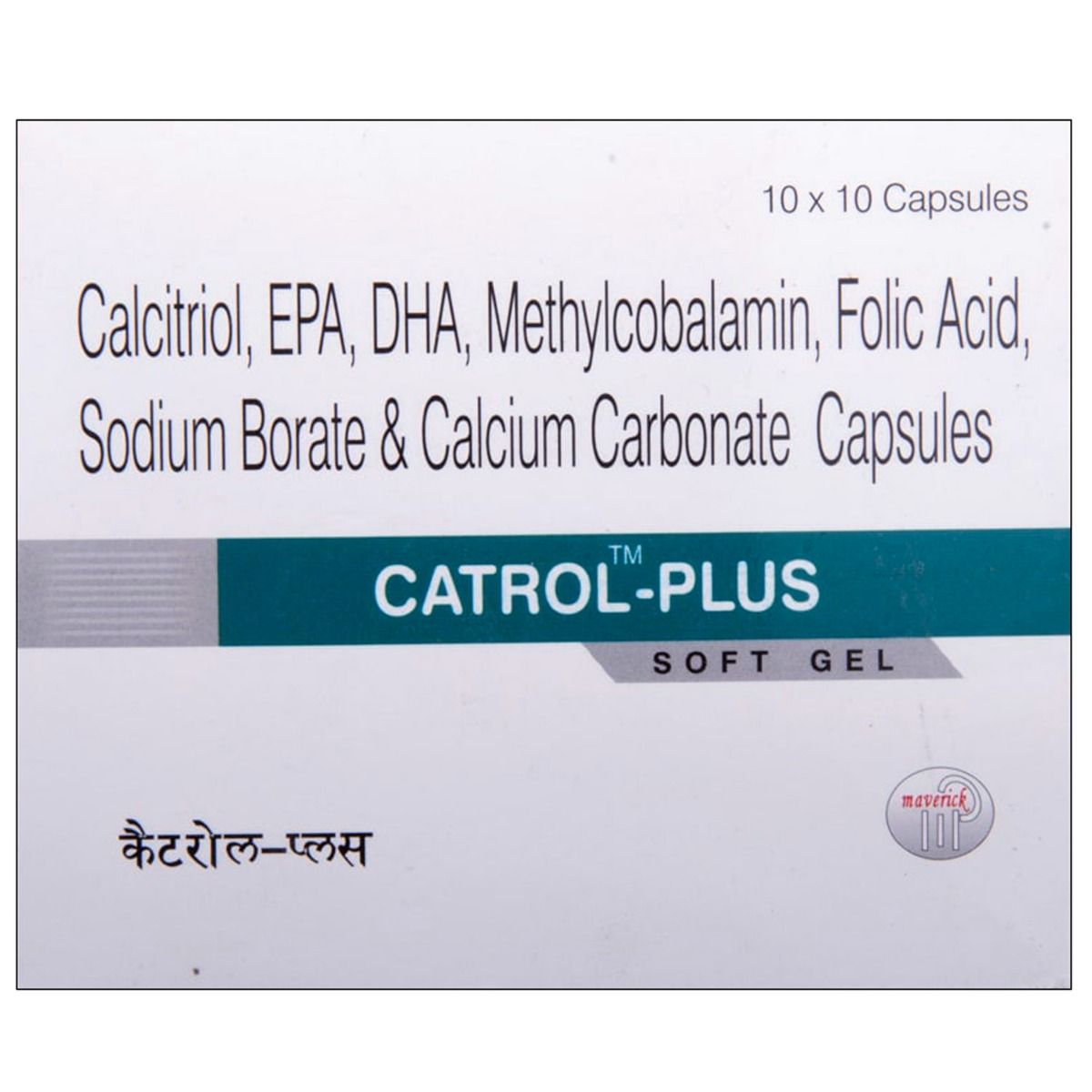Sodium Feredetate+methylcobalamin+folic Acid
About Sodium Feredetate+methylcobalamin+folic Acid
Sodium Feredetate+methylcobalamin+folic Acid belongs to a class of 'nutritional supplements,' primarily used to treat iron deficiency anaemia. Iron deficiency occurs mainly due to poor diet, poor absorption of iron or increased folate use in the body (during pregnancy). Iron deficiency anaemia is a condition in which the body does not have enough red blood cells due to low iron levels.
Sodium Feredetate+methylcobalamin+folic Acid contains Sodium Feredetate, Folic acid, and Methylcobalamin. Sodium Feredetate acts as an iron source and aids in producing red blood cells and the transportation of oxygen to body tissues. Folic acid helps in forming red blood cells and prevents and treats folate deficiency (low blood levels of folate). Methylcobalamin regulates body functions, such as cell multiplication, blood formation, and protein synthesis.
Your doctor will decide the dosage and duration based on your medical condition. In some cases, Sodium Feredetate+methylcobalamin+folic Acid may cause side effects like nausea, diarrhoea, constipation, stomach upset, and confusion. These side effects do not require medical attention and gradually resolve over time. However, if these side effects persist longer, please consult your doctor.
Brief your medical history to the doctor if you have any heart/kidney/liver diseases, iron overload disorders like hemochromatosis, hemosiderosis, and intestinal problems (ulcer, colitis). It is essential to seek medical advice before starting Sodium Feredetate+methylcobalamin+folic Acid if you are pregnant or breastfeeding. Drinking alcohol may affect iron absorption; therefore, it is advised to consult your doctor if you have any concerns. Sodium Feredetate+methylcobalamin+folic Acid should be given to children only when advised by the doctor.
Uses of Sodium Feredetate+methylcobalamin+folic Acid
Medicinal Benefits
Sodium Feredetate+methylcobalamin+folic Acid contains Sodium Feredetate, Folic acid, and Methylcobalamin (a form of Vitamin B12). Sodium Feredetate+methylcobalamin+folic Acid is used to treat iron-deficiency anaemia. Sodium Feredetate acts as an iron source and aids in producing red blood cells and the transportation of oxygen to body tissues. It does not cause teeth discolouration and is less likely to cause stomach upset than other iron-containing medicines. Folic acid helps form red blood cells and prevents and treats folate deficiency. Methylcobalamin regulates body functions, such as cell multiplication, blood formation, and protein synthesis. It further helps in the proper functioning and development of the blood cells, nerves, and brain.
Directions for Use
Storage
Side Effects of Sodium Feredetate+methylcobalamin+folic Acid
- Nausea
- Diarrhoea
- Constipation
- Stomach upset
- Confusion
Drug Warnings
Let your doctor know if you are allergic to any of the components of Sodium Feredetate+methylcobalamin+folic Acid. Brief your medical history to the doctor if you have any heart/kidney/liver/ diseases, iron overload disorders like hemochromatosis, hemosiderosis, and intestinal problems (ulcer, colitis) before starting Sodium Feredetate+methylcobalamin+folic Acid. Pregnant and breastfeeding women should consult their doctor before taking Sodium Feredetate+methylcobalamin+folic Acid. Drinking alcohol may affect iron absorption; therefore, it is advised to consult your doctor if you have any concerns. Sodium Feredetate+methylcobalamin+folic Acid is safe to use in children only when recommended by the doctor.
Drug Interactions
Drug-Drug Interaction: Sodium Feredetate+methylcobalamin+folic Acid may interact with other iron supplements, antacids and antibiotics (chloramphenicol), Parkinson's medications (levodopa, carbidopa), cholesterol-lowering drugs (cholestyramine), fits medicines (phenobarbital, phenytoin), and anticancer drugs (fluorouracil, capecitabine).
Drug-Food Interaction: Sodium Feredetate+methylcobalamin+folic Acid should not be taken along with alcohol, dairy products, and eggs as it might affect iron absorption in the body.
Drug-Disease Interaction: Sodium Feredetate+methylcobalamin+folic Acid should be used with caution in heart, liver or kidney diseases, iron overload disorders like hemochromatosis, hemosiderosis, and intestinal problems (ulcer, colitis).
Drug-Drug Interactions Checker List:
Safety Advice

Alcohol
cautionDrinking alcohol may affect iron absorption; therefore, it is advised to consult your doctor before consuming alcohol with Sodium Feredetate+methylcobalamin+folic Acid.

Pregnancy
cautionThere is limited data on how Sodium Feredetate+methylcobalamin+folic Acid affects pregnancy. Please consult your doctor before starting Sodium Feredetate+methylcobalamin+folic Acid if you are pregnant or planning to conceive.

Breast Feeding
cautionPlease consult your doctor before taking Sodium Feredetate+methylcobalamin+folic Acid if you are a nursing mother.

Driving
cautionSodium Feredetate+methylcobalamin+folic Acid usually does not interfere with your driving ability. However, please consult your doctor if you notice any side effects that affect your mental ability while using Sodium Feredetate+methylcobalamin+folic Acid.

Liver
cautionLet your doctor know if you have a history of liver diseases before taking Sodium Feredetate+methylcobalamin+folic Acid. Your doctor will weigh the benefits and potential risks before recommending Sodium Feredetate+methylcobalamin+folic Acid.

Kidney
cautionIt is advised to seek a doctor's advice before starting Sodium Feredetate+methylcobalamin+folic Acid if you have kidney disease. Your doctor will weigh the benefits and potential risks before recommending Sodium Feredetate+methylcobalamin+folic Acid.

Children
cautionSodium Feredetate+methylcobalamin+folic Acid should be used in children only when recommended by a doctor. The doctor will recommend the dosage of Sodium Feredetate+methylcobalamin+folic Acid based on the child's age and weight.
Habit Forming
Diet & Lifestyle Advise
- Include red meat, pork, poultry, and seafood in your diet.
- Iron sources like kidney beans, black beans, spinach, raisins, apricots, and lentils will help improve your iron deficiency when taken along with Sodium Feredetate+methylcobalamin+folic Acid.
- Also, include iron-fortified cereals, bread, and pasta timely along with your regular food intake.
- Vitamin C foods like orange juice, broccoli, strawberries, melons, and bell peppers enhance iron absorption into the body.
- You can also try iron gummies if you have sweet cravings.
- Recent trends, like using cast iron utensils for cooking, can also improve your iron levels.
Patients Concern
Disease/Condition Glossary
Iron deficiency anaemia: It is a condition caused due to low iron levels in which the body does not have enough red blood cells for carrying adequate oxygen to various body tissues. If the body has too little iron, it cannot make enough haemoglobin. Haemoglobin is the main protein in the red blood cells, responsible for carrying oxygen throughout the body. Anaemia can be temporary, which can be treated with the help of supplements. Sometimes, it can also be long-term, which might require medical procedures to treat. It makes you feel tired very quickly due to a lack of oxygen supply in the body. It is one of the most common blood disorders. Anaemia symptoms include fatigue, shortness of breath, light-headedness, dizziness, fast heartbeat, brittle nails, and pale skin.
FAQs
Sodium Feredetate+methylcobalamin+folic Acid belongs to a class of 'nutritional supplements,' primarily used to treat iron deficiency anaemia.
Sodium Feredetate+methylcobalamin+folic Acid is a nutritional supplement that consists of Sodium Feredetate, Folic acid, and Methylcobalamin. It works by boosting the production of red blood cells (RBC) in the body. It also helps normalise the low iron levels in the body, thus treating iron deficiency anaemia.
It is recommended not to take Sodium Feredetate+methylcobalamin+folic Acid along with tea, coffee, milk, and eggs since they might interfere with iron absorption from Sodium Feredetate+methylcobalamin+folic Acid.
Sodium Feredetate+methylcobalamin+folic Acid is best absorbed if taken on an empty stomach. But in some patients, Sodium Feredetate+methylcobalamin+folic Acid may cause gastrointestinal disturbances like stomach upset or constipation when taken without food. So, please take it as suggested by your doctor if you have stomach problems.
Antacids may interfere with the absorption of iron. Hence it is advised to take Sodium Feredetate+methylcobalamin+folic Acid two hours before or four hours after taking antacids.
Sodium Feredetate+methylcobalamin+folic Acid may cause constipation as one of its side effects. Eating fibre rich foods like vegetables, fresh fruits, and cereals and drinking plenty of water can help relieve symptoms.
If you miss a dose, take it as soon as you remember. However, if it is time for the next scheduled dose, skip the missed dose and follow your usual dosage. Do not double the dose.
Yes, Sodium Feredetate+methylcobalamin+folic Acid is safe for use during pregnancy. However, it should be taken by pregnant women only if suggested by the doctor. The doctor will recommend this medication only if the benefits outweigh the risks.
Though Sodium Feredetate+methylcobalamin+folic Acid is best absorbed on an empty stomach, it can be taken with or without food. However, in some patients, taking it without food may cause gastrointestinal discomfort, such as stomach upset or constipation. To minimize side effects, take Sodium Feredetate+methylcobalamin+folic Acid exactly as suggested by the doctor based on your health condition.
Sodium Feredetate+methylcobalamin+folic Acid is not directly used to treat irregular periods. However, it may help if the irregularity is linked to anemia or nutritional deficiencies, as these ingredients support red blood cell production and overall health.
The side effects of Sodium Feredetate+methylcobalamin+folic Acid include stomach upset, nausea, diarrhoea, constipation, and confusion. Consult the doctor if any of these symptoms persist or worsen.
Yes, Sodium Feredetate+methylcobalamin+folic Acid is safe if taken in the dose and duration suggested by the doctor.






